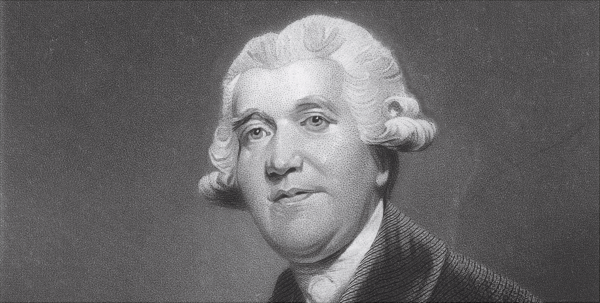THIS WEEK’S MUSE
JOSIAH WEDGEWOOD

By 1732, twelve-year-old Josiah Wedgewood had already developed into a skilled potter in his own right and a career in ceramic art as a “master thrower” beckoned. But a bout of smallpox that year affected his right leg so severely that he could no longer operate the mechanical foot pedal of the potter’s wheel. Though young hopes and dreams may have been initially dashed, he decided to shift the focus of his passion. He turned to design and manufacture, and this decision was to change pottery production and innovation forever.
By connecting design and industry, he has been described as the “Steve Jobs of his day.” He became a hugely successful innovator and entrepreneur who was not only at the epicenter of design development in England, but also transformed the manufacture and creation of ceramics worldwide.
Seeing science and technology as a potential route to success—and more importantly, to give him a clear advantage over his rivals—Wedgwood immersed himself in the advances of his day, using them to innovate new methods of design and manufacture and to revolutionize pottery. The result saw his company, founded in 1759, become rapidly successful and quickly established itself as one of the largest manufacturers in Europe, exporting as far as Russia and the Americas.
In a few short years, Wedgewood had developed, improved, and innovated pottery manufacture to such an extent that he had “left everyone in his wake.” Through systematic experimentation, he led the race in the industrialization of European pottery and the race to be the most successful ceramics company in the world. His game-changing processes caused massive disruption to the industry, especially to the Europe makers. Many who battled against him went out of business; others conceded and adopted the new approaches.
Wedgwood actively participated in the abolition of slavery, and his Slave Medallion brought public attention to the quest. “Ladies wore them in bracelets, and others had them fitted up in an ornamental manner as pins for their hair. At length, the taste for wearing them became general, and thus fashion – which usually confines itself to worthless things – was seen for once in the honorable office of promoting the cause of justice, humanity, and freedom.”
He was also a supporter of the American Revolution. He saw it not as an act of rebellion and resistance—not surprisingly a common position in England at the time—but as the genuine struggle for rights and liberty under law. In support, he designed depictions of the rattlesnake, a symbol of resistance for some of the armies in America against British troops.
One of the wealthiest entrepreneurs of the 18th century, Wedgwood created goods to meet the demands of the consumer revolution and growth in prosperity that helped drive the Industrial Revolution in Britain. He is credited as a pioneer of the production line in manufacture, marketing, direct mail, money-back guarantees, traveling salesmen, self-service, free delivery, buy-one-get-one-free, and illustrated catalogs.
Wedgwood belonged to the fifth generation of a family of potters whose traditional occupation continued through another five generations. And today, Wedgwood’s name remains synonymous with high-quality pottery and ceramics.
HAPPENING
Thursday, January 19. 6–8pm

THIRD THURSDAY FIGURE NIGHTS
With Susan Overstreet
The best way to improve your observational skills.
$25
